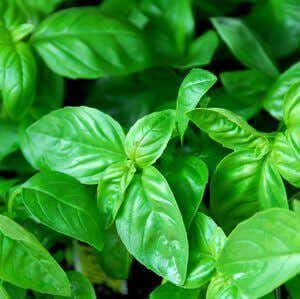
You may be well aware that vegetables and fruits are loaded with vitamins and minerals. Perhaps you’ve even heard about additional compounds we call phytonutrients. These may not be considered essential, as vitamins and minerals are, but chances are that they are good for you. Beyond fruits and vegetables, herbs and spices are loaded with phytonutrients. What health benefits do they offer?
Do Herbs and Spices Bolster the Benefits of the Mediterranean Diet?
Q. Are there any studies on the herbs and spices used in Mediterranean countries? I have recently started cooking ethnically Mediterranean food and find it to be full of flavor.
I know turmeric has health benefits, and cinnamon is good for you. What about cumin, cardamom, coriander, saffron, tarragon, parsley, cilantro, thyme, oregano and rosemary? Will I get the same benefits if I simply adapt a typical American diet to include more beans, fruits and veggies, cook with olive oil and substitute fish for beef? Or do I need all those spices to affect my health, too?
A. That is a wonderful question. So far as we can tell, no one has done a study comparing Mediterranean-style diets with and without spices. However, Italian researchers have reviewed the research on typical Mediterranean foods and spices like olive oil, onion, garlic, saffron, rosemary, oregano, hot pepper, hazelnuts and pistachio (European Journal of Medicinal Chemistry, Jan. 15, 2020). They found that bioactive components in these products help lower insulin resistance, improve lipid levels, increase blood vessel flexibility and reduce inflammation.
Several years ago, we interviewed a cardiologist who was convinced that rosemary contributes to longevity in some small southern Italian towns. If you would like to listen, it is Show 1056: Longevity, Spice and Diet–Secrets Italians Know That You Don’t.
Health Benefits from Spices:
Q. According to some research, cinnamon, turmeric, garlic, ginger and rosemary are spices that have anti-inflammatory and anticancer activity. In addition, I’ve read that some spices may also help to prevent dementia and control blood sugar and blood pressure. Do you need to take them with food for them to be effective?
A. There are studies demonstrating that such spices do have antimicrobial and anti-inflammatory power (Clinical Nutrition Research, Oct. 2015). They might even help against cognitive decline. Specifically, a pilot study demonstrated that a combination of sage, rosemary and lemon balm seemed to help people with word recall (Phytomedicine, Jan. 15, 2018).
These may not be the only health benefits you’ll get from spices. After all, some experts have hypothesized that part of the power of the Mediterranean diet could derive from its liberal use of spices.
Learn More About Health Benefits of Spice:
You can learn more about these and many other flavorful plants in our book, Spice Up Your Health: How Everyday Kitchen Herbs & Spices can Lengthen & Strengthen Your Life. You’ll find it complete with research references and recipes.
To order by mail, please send $15.95 plus $4 postage and handling to Graedons’ People’s Pharmacy, Dept. SUYH; PO Box 52027; Durham, NC 27717-2027.
You might also want to listen to Show 988: Spices for a Healthy Life, with Dr. Ajay Goel and Dr. Christopher Gardner.
Must You Take Your Spice with Meals?
We think that spices generally work best when used with foods. Traditional combinations such as curry contain ingredients (black pepper, ghee or coconut oil) that improve the absorption of curcumin, the active ingredient in turmeric. Very likely traditional Greek and Italian recipes also enhance the health benefits from herbs like oregano or rosemary.
Citations
- Bagetta D et al, "Mediterranean products as promising source of multi-target agents in the treatment of metabolic syndrome." European Journal of Medicinal Chemistry, Jan. 15, 2020. DOI: 10.1016/j.ejmech.2019.111903
- Ganjre A et al, "Anti-carcinogenic and anti-bacterial properties of selected spices: Implications in oral health." Clinical Nutrition Research, Oct. 2015. doi: 10.7762/cnr.2015.4.4.209
- Perry NSL et al, "A randomised double-blind placebo-controlled pilot trial of a combined extract of sage, rosemary and melissa, traditional herbal medicines, on the enhancement of memory in normal healthy subjects, including influence of age." Phytomedicine, Jan. 15, 2018. DOI: 10.1016/j.phymed.2017.08.015

